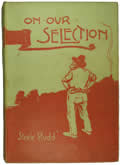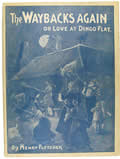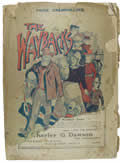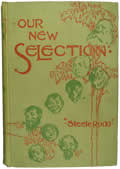Summary
Bush melodrama is a minor but significant genre in colonial Australian popular fiction, characterised by a humour that trades on day-to-day struggles in the lives of small time rural selectors. Prolific colonial author 'Steele Rudd' (Arthur Hoey Davis) is the best-known writer of this form, widely recognised for his popular 'Dad and Dave' sketches, which were based on his experiences growing up in rural Queensland. Published originally in the Bulletin, Rudd's tales were later collected in several volumes including On Our Selection (1899) and Our New Selection (1903), as well as being adapted for the stage. The popular success of his early tales attracted a number of imitators, including Rudd's contemporary, Henry Fletcher, whose novels including The Waybacks: In Town and at Home (1902) and The Waybacks Again or Love at Dingo Flat (1910) operated along similar themes. Through a focus on parochialism and rural vernaculars colonial Australian bush melodrama performed a distinct kind of 'Australianness' that came to circulate overseas as well as locally.



